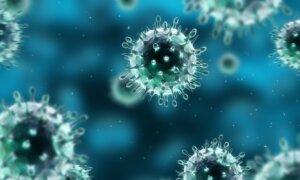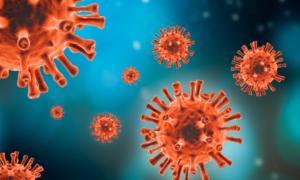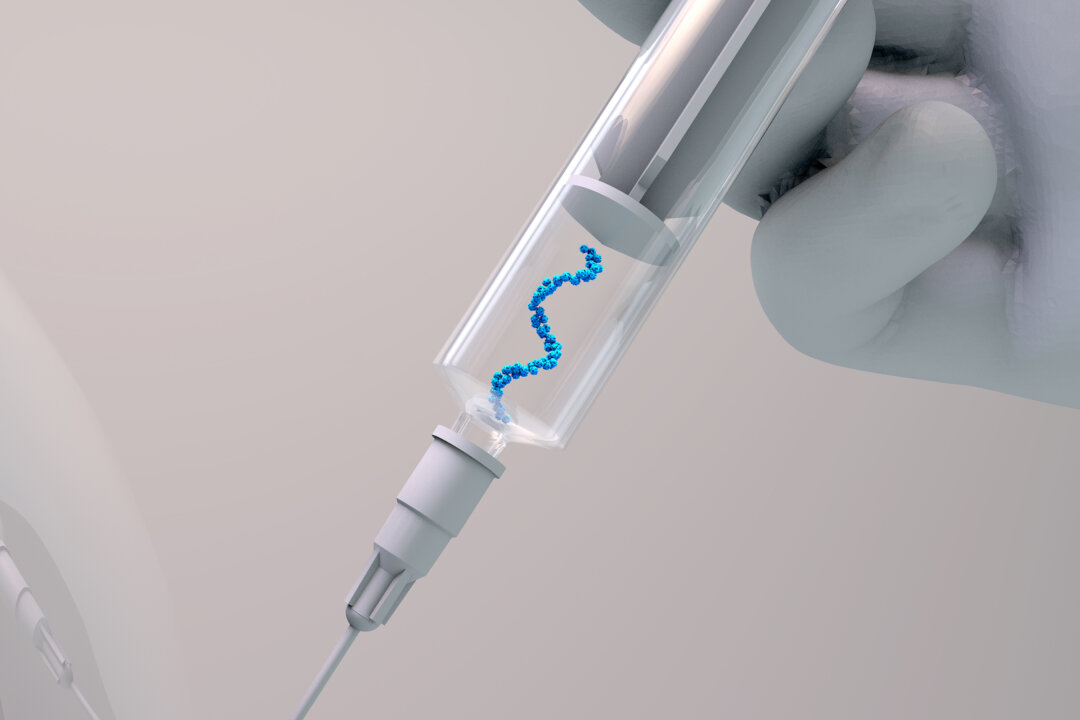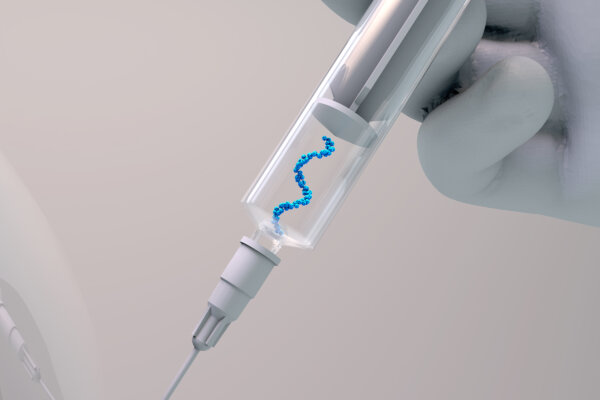Vaccinated People Show Long COVID-Like Symptoms With Detectable Spike Proteins: Preprint Study
The findings indicate that the persistence of spike proteins was likely the driver for symptoms of long COVID and post-vaccine syndrome.
The authors extracted immune cells from 14 post-vaccine patients and found that 13 had spike protein in their immune cells. Asymptomatic vaccinated people had no spike present.
Researchers from InCellDx, a research company that produces panels and protocols that test for and treat long COVID and post-vaccine syndrome, authored the paper.
In both papers, the spike proteins were detected in monocytes, immune cells that circulate the body.
These findings indicate that the persistence of these spike proteins was likely the driver for the symptoms of long COVID and post-vaccine syndrome, InCellDx founder and lead study author Dr. Bruce Patterson told The Epoch Times.
“These cells bind to the blood vessels. They cause endotheliitis (inflammation of endothelium) and vascular inflammation, which I think now has been corroborated by many as being probably one of the most important pathogenic mechanisms in long COVID,” Dr. Patterson said.
Spike Protein Reservoirs
“Monocytes are scavenger cells of the immune system,” Dr. Patterson said. Monocytes function similarly to how the video game character Pac-Man does: They roam the body and gobble up proteins they come across in their way.
In long COVID, monocytes gobble up spike protein, the virus’ viral debris. In post-vaccine syndrome, the monocytes engulf spike proteins, which the body makes from the COVID-19 vaccine.
These spike proteins are then stored inside the monocytes, which causes the cells to live longer than they should. The prolonged longevity can cause inflammation, leading to various long-lasting symptoms.
In the study, Dr. Patterson and his team observed that post-vaccine patients had significantly higher monocyte levels than those without post-vaccine symptoms. The symptomatic post-vaccine patients also had a clear elevation in inflammatory biomarkers, whereas the asymptomatic patients did not.
Dr. Patterson believes that at the time of the study, viral replication or spike protein production from vaccinations was no longer occurring. Instead, the spike proteins persisted for months because they were being stored.
He reasoned that once the monocytes engulfed the spike proteins, the spike hijacked the cells’ cell death program, turning off cell death “so they become long-lived cells.”
A similar phenomenon occurs with the HIV and hepatitis C viruses.
Monocyte cells can cause inflammation. Particularly, nonclassical monocytes, which traverse the blood vessels, can lead to blood vasculature inflammation and damage.
Long COVID vs. ‘Long Vax’
The recent preprint also shows how long COVID and post-vaccine syndrome may be differentiated.
While the same thing—spike protein persistence—likely causes both conditions, the conditions have slightly differing chemical profiles, especially regarding the level of interleukin-8, or IL-8.
IL-8 is a type of cytokine that aids in attracting immune cells to areas of inflammation, Dr. Patterson explained.
He said that medication that blocks these different cytokines should resolve symptoms. For example, his team found that tumor necrosis factor-alpha (TNF-alpha) is a cytokine that, when elevated, induces fatigue. Therefore, reducing that cytokine can help diminish fatigue.
Other cytokines shared between long COVID and the condition dubbed “long vax” include sCD40L and CCR5, which drive vascular inflammation. Another cytokine, IL-6, signals systemic inflammation.
Dr. Patterson explained that the two conditions’ distinct chemical profiles may be due to their different delivery mechanisms: Viral infection causes long COVID, while inoculation causes post-vaccine syndrome.
Treatment Protocol
Dr. Patterson uses the same protocol for treating long COVID and post-vaccine syndrome. Both treatments entail curbing inflammation in the blood vessels and throughout the body.
His protocol includes using maraviroc, an HIV drug, and atorvastatin, a type of statin, to target vasculature inflammation.
Maraviroc blocks CCR5, a type of inflammatory cytokine that causes blood vessel inflammation, while statins can bind to the receptors inside the blood vessels, blocking them from binding to inflammatory monocytes.
Many doctors have found successes with ivermectin, N-acetylcysteine (NAC), and nattokinase, all of which are drugs and nutraceuticals that help break down outside spike protein. However, Dr. Patterson reported the opposite in his practice. He explained that the drugs cannot target the spike protein stored inside cells.
Long Vax Masked as Long COVID
The study findings imply that some people diagnosed with long COVID may actually be suffering from post-vaccination symptoms.
Dr. Patterson said that the symptoms being reported in these post-vaccine patients “were almost identical to the symptoms in long COVID,” with the predominant symptoms being fatigue, neuropathy, brain fog, and headache. Long-COVID patients in another cohort also reported these symptoms.
“[Long vax] has a very low prevalence, but because billions of [people] are vaccinated, there’s a great number of individuals who have long vax,” he added.
Apart from post-vaccine syndrome, Dr. Patterson said that patients with an exacerbation of Lyme disease and myalgic encephalomyelitis (chronic fatigue syndrome) have also been labeled as long-COVID patients due to a symptoms-based diagnosis.
This article has been archived for your research. The original version from Epoch Times can be found here.






